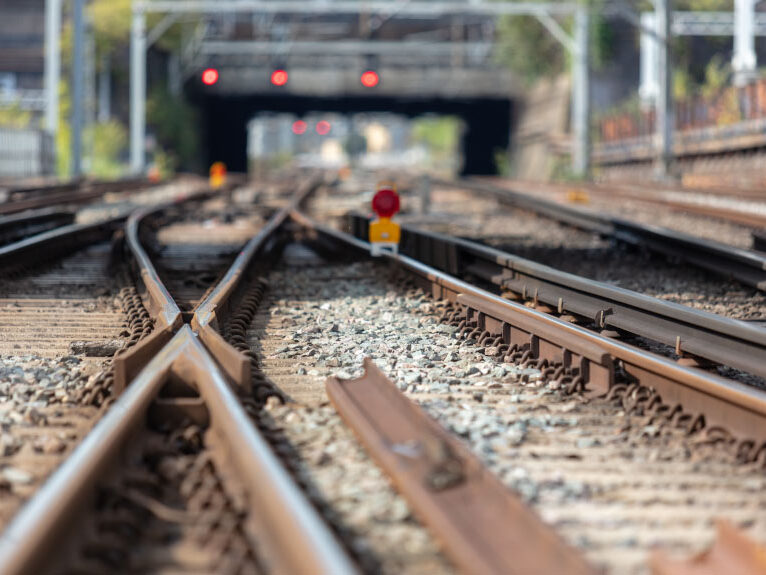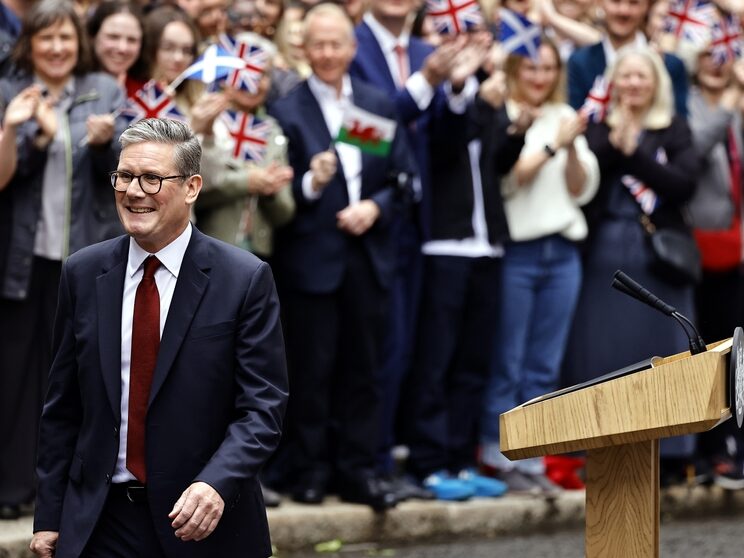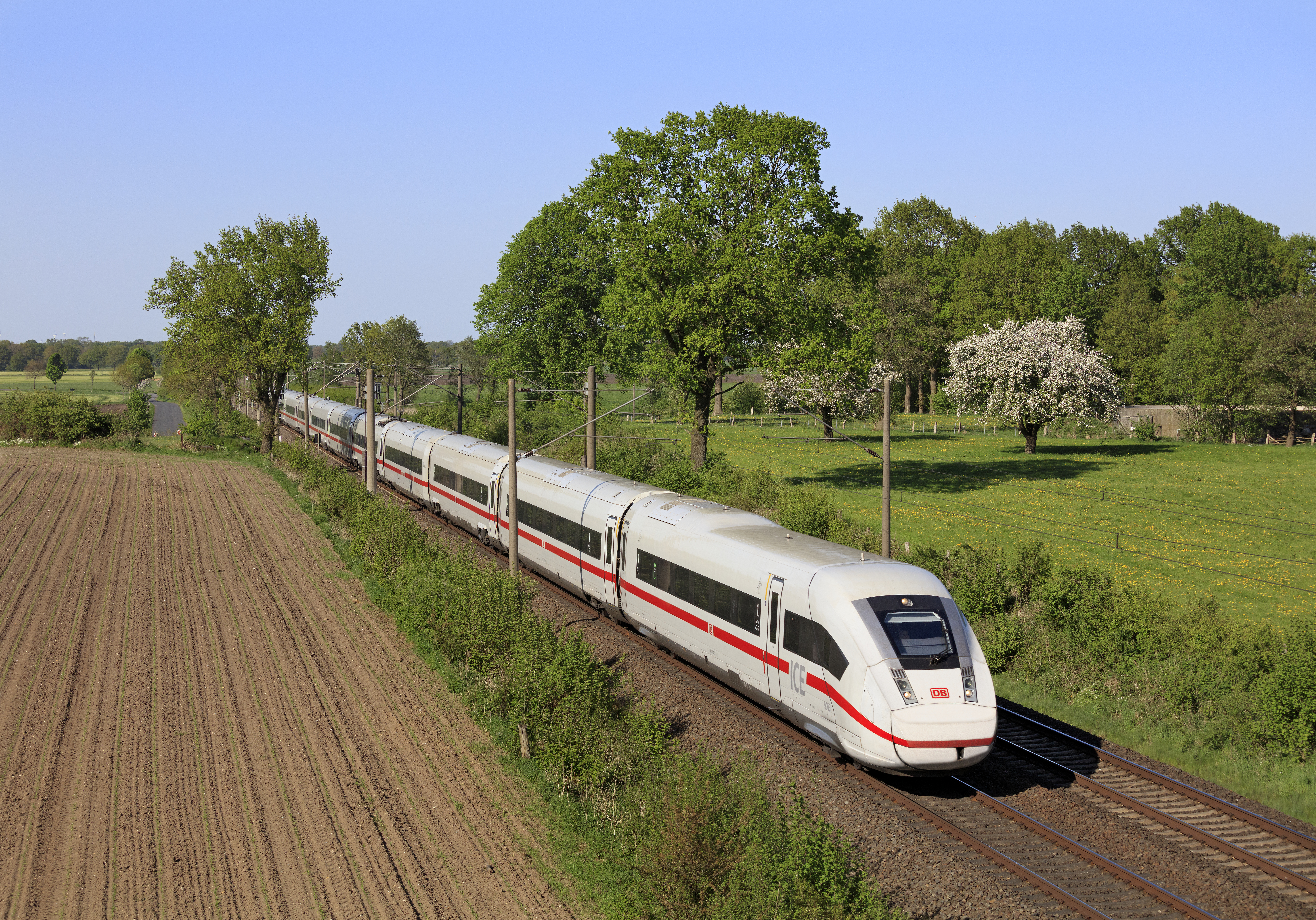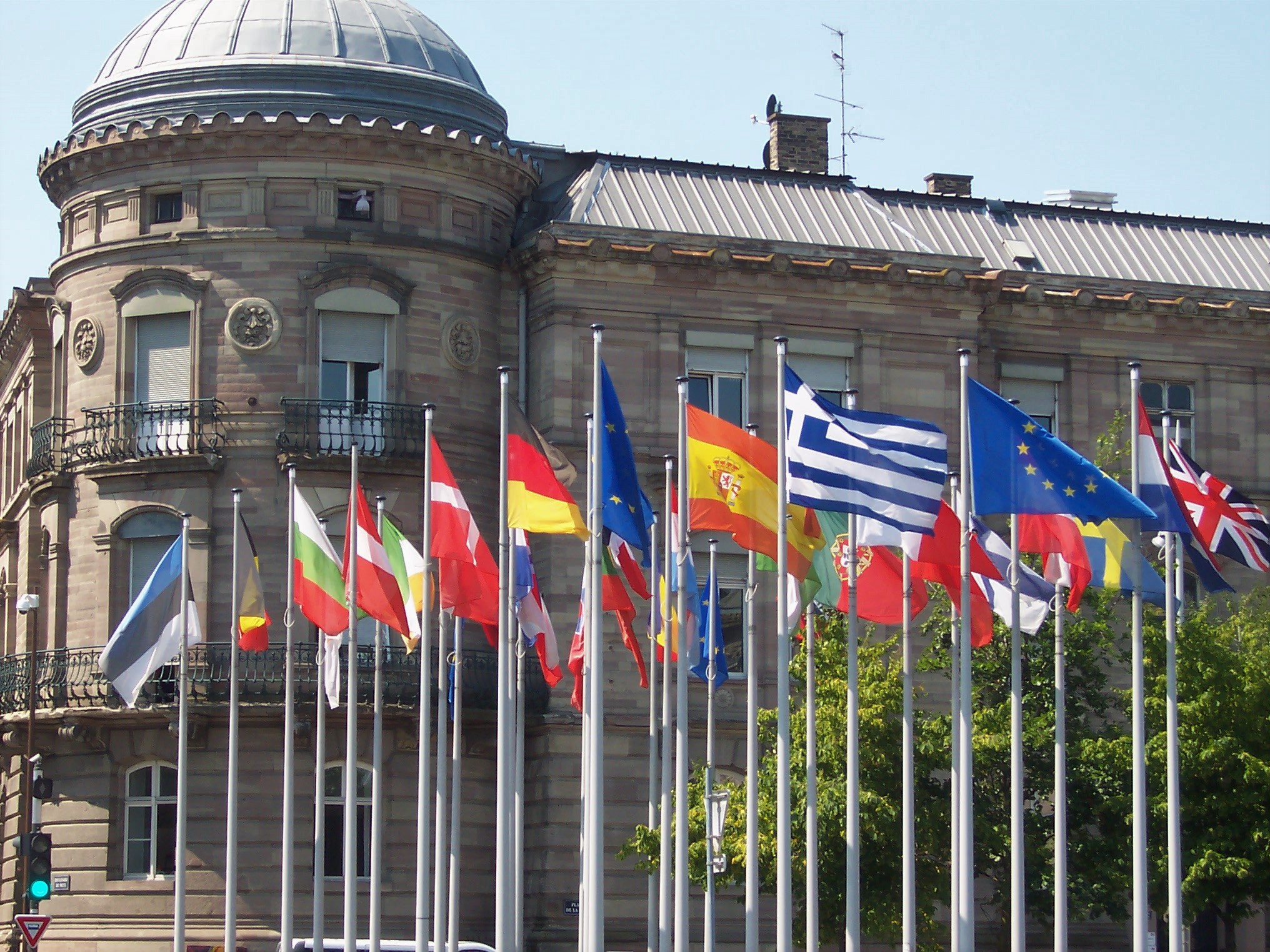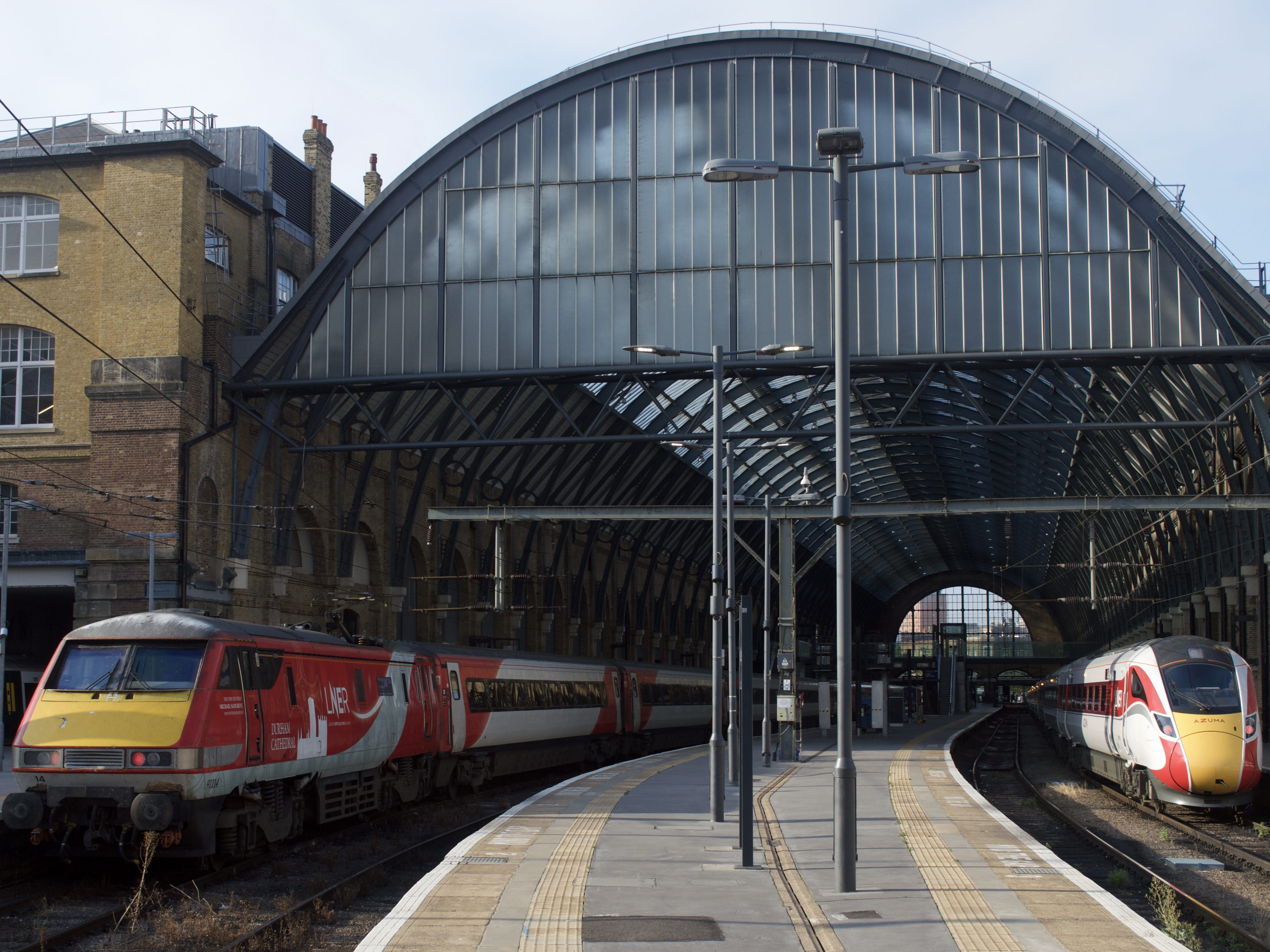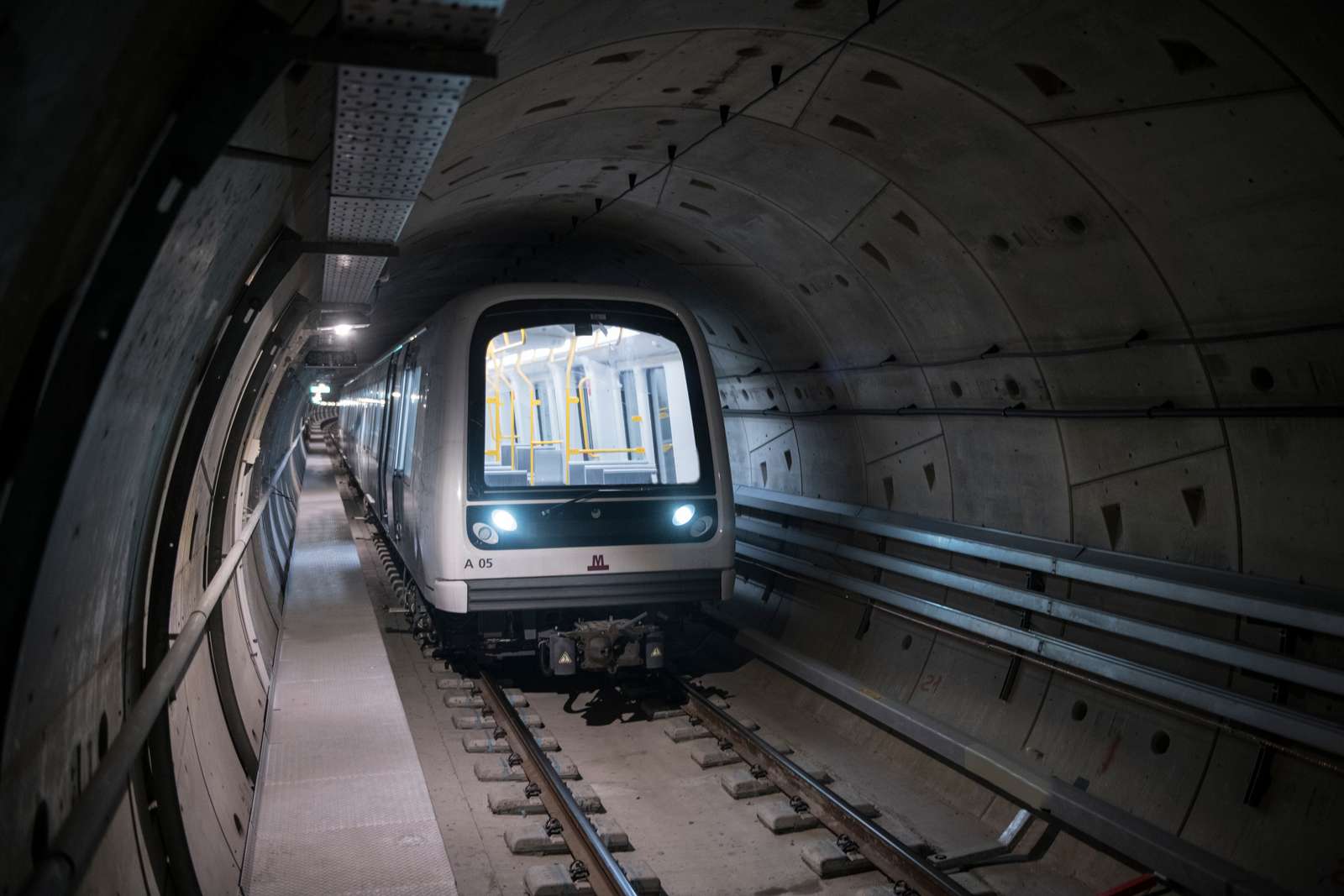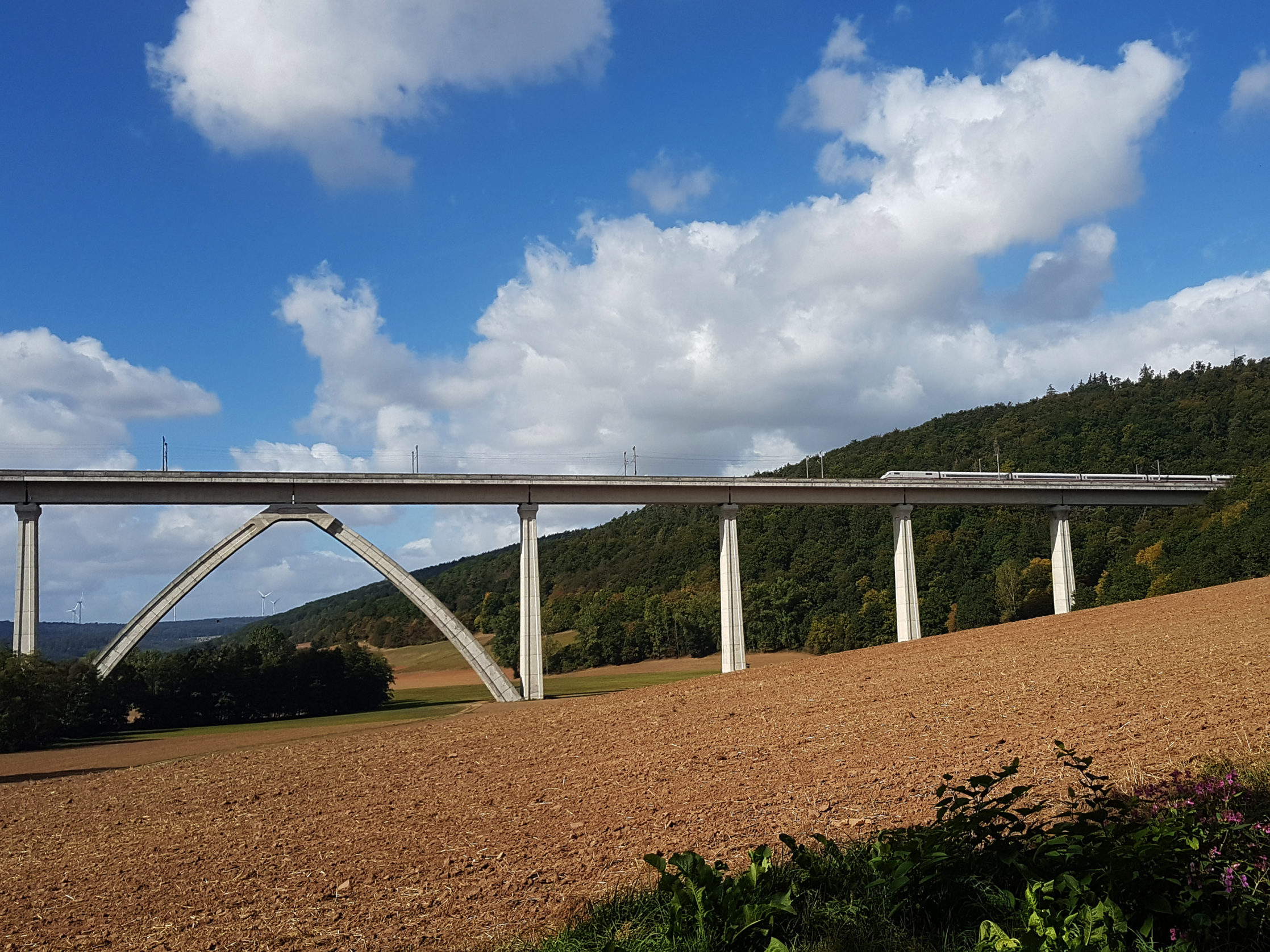Talgo’s Chairman, Carlos Palacio Oriol, participated in the conference ‘Innovative Technologies in Key Sectors of Decarbonization: The Role of Industry’ at COP25 in Madrid.
He took part in the event together with the Spanish Minister of Industry, Trade and Tourism, Reyes Maroto. Other participants included the CEO of FERROVIAL, the CEO of ENAGAS, the President of ECODES, the Founder of CEREALTO SIRO Foods, and the President of the EROSKI Foundation. Elena Salgado was the moderator.
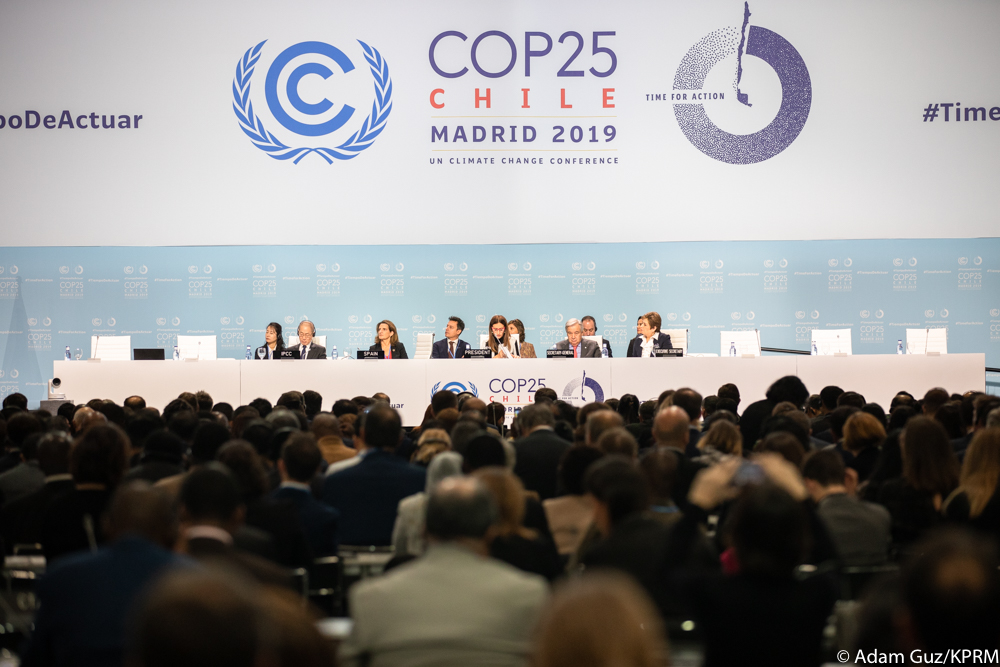
The event focused on the role of industry in protecting communities, vital ecosystems and the global climate against increasing environmental risks and the resulting shortage of natural resources.
Carlos Palacio Oriol said at the conference:We participate in COP25 to stress that the only realistic and immediate solution to reduce the CO2 footprint caused by means of transport such as airplane or automobile is the railway. The direct way to maximise its efficiency and minimise the emission of greenhouse gases is to have light trains with advanced technical characteristics in terms of energy efficiency, such as the Talgos.
Overall, the event participants were in agreement that there was a need for industrial processes to play a part in sustainable development. This development should satisfy fundamental needs and raise quality of life by rationally managing natural resources, and promoting their conservation, recovery, improvement and appropriate use.
Talgo says its trains are particularly ecological because of how lightweight they are. It says its high-speed trains are up to a quarter lighter than those of their direct competitors. This in turn leads to a reduction in energy consumption of almost a third.
However, while it is true that lightweight train construction can result in a reduction of energy consumption compared to a heavier train running at the same speed, it should be pointed out that some industry members have pointed out that high-speed trains themselves are ecologically questionable. The amount of energy necessary to run a train at 250km/h over 200km/h for example is exponentially greater. Even if that energy comes from renewable sources, the infrastructure required to capture that energy still must be manufactured from finite resources and we should not engage in the kind of thinking that just because our energy is renewable, we can expend an unlimited quantity.
On the other hand, a train travelling at 250km/h is still far more environmentally friendly than any flight and if faster train travel will get passengers to shift away from short-haul flights to taking the train, then the outcome is still a net positive. This is especially true in light of the fact that carbon-offsetting is a con. A European Commission report from 2017 found that 85 percent of offset programmes for the United Nation’s Clean Development Mechanism did not deliver any “real, measurable and additional” reductions in emissions.
Talgo is sponsoring the COP25 climate summit, which is taking place in Madrid, after serious problems in original host country Chile. Of course, this climate summit is not a major event per se for the rail industry, but InnoTrans 2020 will be. Don’t fly there. Because just making trains and their components doesn’t give anyone environmental credentials. Taking them does.
The International Union of Railways, UIC, says:COP25 will be an opportunity for UIC to reinforce the role that railways play in the sustainable development transport. In 2019, scientific statements regarding climate are alarming; even if states were to meet their commitments made at COP21 in 2015 for 2020, the planet would warm up by 3°C by the end of the century. In order to stay in line with the Paris Agreement, countries need to multiply their ambitions threefold and carbon neutrality should be reached before 2050 and renew or revise upward their climate commitments ('Nationally Determined Contributions' or NDC) submitted in 2015, by the end of 2020. Those must represent a progression compared to their previous commitment and correspond to the 'highest possible level of ambition'. The European Commission already decided to increase its targets for 2030 and to work under the European Green Deal to become world’s first carbon neutral continent before 2050.
{...} UIC proposes to align its 2050 CO2 emissions target to what becomes more and more widely shared as a consensual target to reach the Paris agreement: Carbon Neutrality by 2050 (instead of and - 75% by 2050). {...}
All UIC members are asked to adopt the carbon neutrality target by 2050 and the support to SDGs through a signed declaration that could be presented at COP25.
Transport Day at COP25
On 6 December Transport Day will take place at COP25. The event will be broken down into three sessions:
- increasing transport ambition to bridge the mitigation gap
- removing barriers for implementation and scaling up low-carbon, sustainable, resilient transport
- discussion on what the transport sector needs to deliver in 2020 for COP26
Carlos Palacio Oriol:In Talgo we believe that the COP25 is an opportunity to reach ambitious and realistic agreements that will allow us to decisively tackle the situation without compromising economic development.
Follow the hashtag #railtothecop to find out who is travelling to the climate conference in an environmentally sustainable manner.
Also read:
- A Big, Green Deal for Europe: Rail and the Graz Declaration
- Study Shows Tramways Have a Smaller Carbon Footprint than Buses
- COP21: Rail Applauded as Most Sustainable Mobility Solution
- COP21: Copped Out on Transport

















